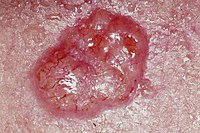
Berberine promotes the viability of random skin flaps via the PI3K/Akt/eNOS signaling pathway
Sign Up to like & getrecommendations! Published in 2022 at "Phytotherapy Research"
DOI: 10.1002/ptr.7621
Abstract: Random skin flaps are often used in reconstruction operations. However, flap necrosis is still a common postoperative complication. Here, we investigated whether berberine (C20H19NO5, BBR), a drug with antioxidant activity, improves the survival rate of… read more here.
Keywords: pi3k akt; akt enos; berberine promotes; skin flaps ... See more keywords

Roxadustat promotes hypoxia-inducible factor-1α/vascular endothelial growth factor signalling to enhance random skin flap survival in rats.
Sign Up to like & getrecommendations! Published in 2023 at "International wound journal"
DOI: 10.1111/iwj.14235
Abstract: Random skin flaps have limited clinical application as a broad surgical reconstruction treatment because of distal necrosis. The prolyl hydroxylase domain-containing protein inhibitor roxadustat (RXD) enhances angiogenesis and reduces oxidative stress and inflammation. This study… read more here.
Keywords: factor; flap survival; group; random skin ... See more keywords

Effects of limonin treatment on the survival of random skin flaps in mice
Sign Up to like & getrecommendations! Published in 2023 at "Frontiers in Surgery"
DOI: 10.3389/fsurg.2022.1043239
Abstract: Random skin flap is commonly used in plastic and reconstructive surgery, however, distal part of skin flap often occurs ischemia and necrosis. Limonin, with bioactivities of anti-inflammation, anti-apoptosis and anti-oxidative stress, may be effective for… read more here.
Keywords: skin; skin flap; skin flaps; flap ... See more keywords